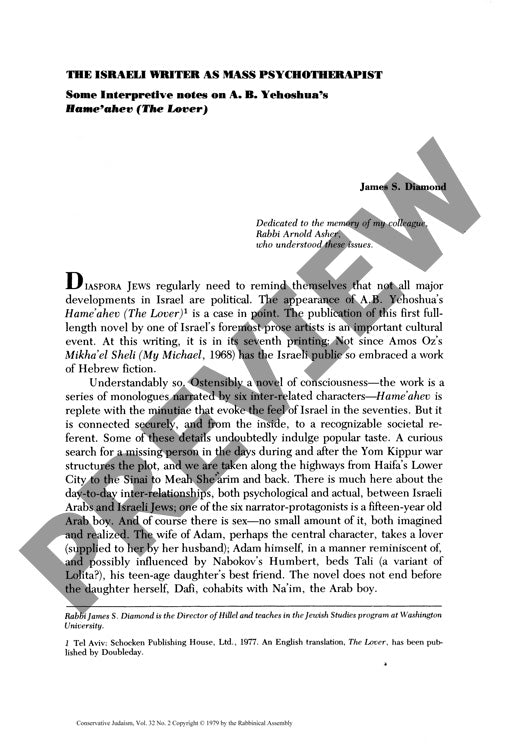The Israeli Writer as Mass Psychotherapi
Couldn't load pickup availability
In the aftermath of the Yom Kippur War, Israeli literature grappled with profound questions of national identity and cultural malaise. A.B. Yehoshua's novel *Hameahev* (The Lover) transcends its sensationalist surface to perform a remarkable feat of collective psychotherapy for Israeli society. Through six interconnected monologues, Yehoshua constructs a dual-layered narrative that operates simultaneously as realist fiction and national allegory. Close textual analysis reveals how the central marriage between Adam and Asiah metaphorically mirrors the relationship between the Jewish people and the Zionist vision, depicting a state of cultural and ideological entropy. By strategically deploying popular literary elements—particularly sexuality and Jewish-Arab relationships—Yehoshua creates vehicles for exploring deeper psychological and societal repressions. The novel ultimately functions as both cultural artifact and therapeutic intervention, exposing moral ambiguities and spiritual emptiness in contemporary Israeli society while advocating for a humanistic rather than mythic approach to Zionism. This careful examination of the text within post-war Israeli society and broader Zionist discourse demonstrates how literature can serve as a medium for processing national anxieties and collective trauma.

More Information
-
Physical Description
-
Publication Information
Published 1979
ISBN
-
Publication Credits
James Diamond

